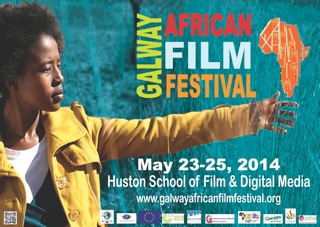Let’s get to the point – film isn’t real. It can’t be. You take a story and fiddle with it a bit, compress it, elongate it, fictionalise ten minutes here or there and before you know it you have a visual narrative that connects with an audience. Sometimes this doesn’t actually matter.
I don’t sit watching a Transformers film (if I’ve been tied down that is) pondering the motivation of Optimus Prime and if this visual actualisation really reflects what it’s like to be an intergalactic metalloid that assumes so many parts through transmogrification. On the other hand you have a film like Schindler’s List for when it really matters – but even here there’s a bit of cinematic licence.
But it’s not just the big topics that matter – where the films are made can be just as important, particularly when they are made in Africa.
For many, Africa is a homogenised entity of corruption and suffering that makes no allowances for the huge range of cultures and experiences that make up a vibrant continent of a billion people. And that, sadly, is the standard interpretation of the African story as told on screen.
Take Steve McQueen and what some would say was the unrelenting misery of Twelve Years a Slave – and I know – given the subject matter it could hardly have been a cheery trot through a decade and a bit of Afro-American history. I’ll bet plenty think it’s just so authentic because a) he’s black; b) he makes decent films and; c) he seems emotionally invested in his work. And that’s okay – he cares, he tries and he took a difficult story to a big audience.
Other films stretch the African story out as a convenient backdrop and play on the stereotypes alluded to above. Have another peek at Blood Diamond – Africa is seen as a cynical place which is summarised by the refrain ‘this is Africa’ that is shorthand for various sorts of ‘shit happens’ stuff. Leonardo Di Caprio’s character finds redemption by his martyrdom so that one black African can find the riches we all dream of and move to the western world.
So that’s it then – all you need to know to get the African experience through film is watch something that makes you watch with your mouth open at the worst that humankind has to offer and either feel incredibly sad or slightly more optimistic because something good happened near the end.
Does it matter that practically all of the films the average movie-goer are a westernised entertainment product? As long as we feel what we are supposed to feel – and audiences are as good at knowing this as film makers are at ensuring that they do – then it’s okay, right?
But how do Irish audiences feel when they see their own patch manipulated by Hollywood for the purpose of peddling their wares? From the nostalgic olde Oirish hokum of The Quiet Man to the grim sound of Tom Cruise’s bad school play accent in Far and Away there’s a lot to choose from.
We didn’t take to the latter all that much but funnily enough we have connected better with films made closer to home – take The Commitment’s or more recently The Guard – because audiences feel they reflect outwardly to the world who we are a little bit better. You see, cinematic expression is one aspect of cultural identity just as much as literature and music and it might surprise you that Africa has a lot to offer on the big screen (although it shouldn’t given the positive reception African music and writing receives).
And that’s why the Galway One World Centre, with the assistance of generous funding from Galway City Council, is delighted to announce a unique opportunity for those interested in film.
From May 23 – 25, the Galway African Film Festival which is now in its seventh year, is giving film-goers the opportunity to view some of the most thought provoking work from Africa’s contemporary cinematic story tellers for free. Internationally renowned films like Mother of George which premiered at the 2013 Sundance Festival along with the powerful short Jonah which has also shown at Sundance are on offer along with the very topical Half of a Yellow Sun which has caused controversy in Nigeria where the story takes place.
Yes, some of these offerings are about misery – bad things happen in Africa for all sorts of reasons – but these and others are also about the full range of deeds and emotions that can be found in any (good) western made film. And just maybe – because they are made a little bit closer to the subject matter they portray – they might better connect the audience with a continent that much of the time is portrayed, just as in Blood Diamond, in shorthand.
_____________________________________
For more information see www.galwayafricanfilmfestival.org for listings and details on the eleven films and shorts on offer over the weekend.

